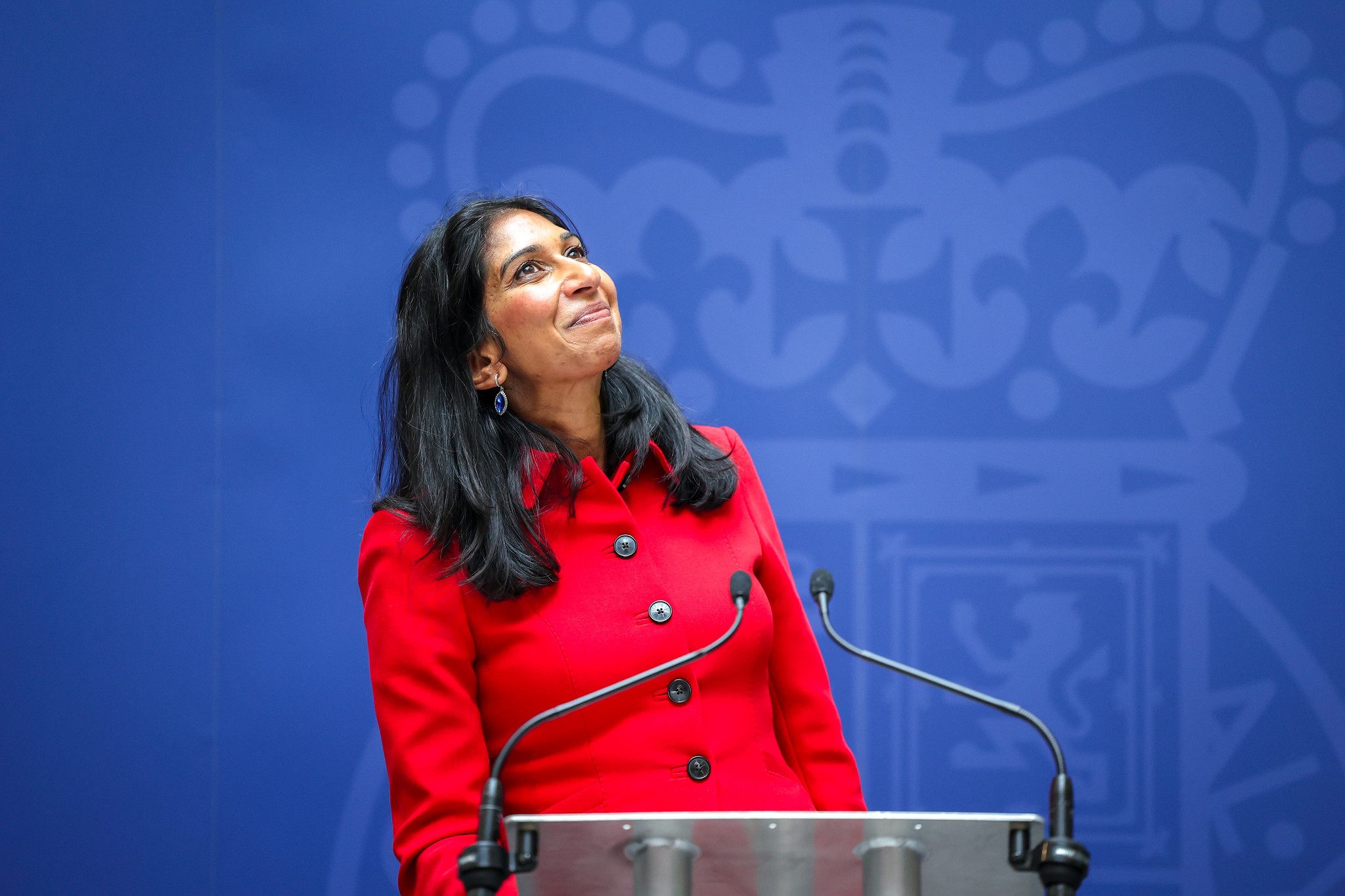A Labour fest unlike any other
Exciting, exhilarating and FOMO-inducing even while you were there? Yes. Mind-numbingly predictable, regimented and dull? Why, also yes.
Heaving, oversubscribed, besieged by lobbyists and engulfed by the scent of power wafting from around the corner, the Labour conference this year was unlike any other I have ever attended.
It was also the most mind-numbingly boring one yet.
My plan to learn about policy from the back of fringe meetings was stymied by the fact it was frequently impossible to get into the bloody things, but almost everyone I spoke to relayed an inescapable sense that the news was happening elsewhere. There were no splits to report on, no unexpected stories: from the stage, on the fringe, in the bars, everyone toed the party line. Even Richard Burgon, a Corbyinista if ever there was one, was disappointingly on-message.
This regimented tedium is part of what made it unique. Since my first Labour conference, back in 2007, the party has run through four leaders, lost four elections, and flitted from what one might term “cautious pessimism” to outright despair and back, more than once. Gordon Brown governed from the social democratic centre, helped save the world from the financial crisis and faced down a leadership contest. He still lost, badly. Ed Miliband campaigned from the soft left, and faced no leadership challenge despite constant noises off stage: he too lost, and worse.
“Everybody on the inside finally believes they’re actually going to win.”
Jeremy Corbyn took the movement farther to the left still, and became so unpopular with his own MPs that he presided over an actual split in the party: he retained the leadership at least partly because the challenger the rebels put up against him was so terrible that I bet you’d forgotten all about him and are struggling even now remember his name. (I’ll plant the answer further below while you ruminate.) Corbyn still lost two elections, the latter the worst for the party since 1935, when a chunk of it was literally in coalition with the Tories.
Under none of these men – it’s striking that they were all men – was the party’s annual conference a unified or happy affair. This was terrific if you write about politics, for genuine drama or for laughs. It was terrible if you were actually hoping for a Labour government.
Last year’s event, during the chaotic mayfly premiership of Liz Truss, brought the first glimmers of hope. With Kwasi Kwarteng’s kamikaze budget statement having put rocket boosters under the opposition polling just a few days earlier, there was, for the first time in years, a giddy feeling the party might actually win. But while that affected the mood, it had not yet time to feed into the shape of the conference.
After a year of 20-odd point poll leads, it has.
This meant several things. First off, this year’s conference was the biggest ever, with more than 18,000 people in attendance. That meant such unlikely turns of events as a scrum to get into shadow chancellor Rachel Reeves’ speech (seven standing ovations!), and fringe meetings on such wonky topics as the future of local government being standing-room only. At one point, I asked some people what they could possibly be queuing for in a line which snaked out of sight along the corridor. “Wes Streeting,” I was told. If I hadn’t seen it, I probably wouldn’t have believed me, either.
Starmer finally said something that couldn’t be filed under “better things aren’t possible”.
At the same time, these masses were also better fed and watered than attendees had been in years. Those 18,000 attendees included vast numbers of commercial visitors, more parties thrown by media organisations like Politico and the Spectator, and a scale and visibility of corporate sponsorship unseen since the days of New Labour. One can, and should, question what impact this lobbying offensive might have on policy; it nonetheless did wonders for the quality of the buffets.
Then came the celebrity endorsements: Will Young, Mary Portas, Mark Carney. If you’re not moved by the support of a reality TV popstar, an entrepreneur or the recovering central banker headhunted by the guy who broke the country in the first place, then frankly you’re a lost cause.
*
So, exciting, exhilarating and FOMO-inducing even while you were there? Yes. But also mind-numbingly predictable and dull? Why, also yes.
One reason for this must be that parties come to look like their leaders: those who hate Starmer the most have left, voluntarily or otherwise, and single issue protestors were, our glitter-toting friend aside, stuck outside. (The anti-Brexit rewrite of Yellow Submarine that played on a loop in the concourse will haunt my dreams. Also, that guy I mentioned earlier was Owen Smith.)
But another, even more compelling reason must be that everybody on the inside finally believes they’re actually going to win. The front bench has long refused to say anything that might be construed as progressive, even if that requires refusing to promise to do anything about, say, child poverty. Roy Jenkins famously quipped that Labour’s attempts to win an election were like trying to carry a priceless Ming vase across a polished floor. This conference, no one wanted to be the one to drop the vase.
*
And just in case Starmer himself needed any more of a contrast between himself and the more activist and volatile form of Labour, a protester covered him with glitter. The guy might as well have anointed him. So helpful to the Labour leader was the opportunity to remove his jacket and show he could not be diverted by middle-class protestors with baffling causes that for half a second I genuinely wondered if all this was planned. The fleeting look of genuine panic on Starmer’s face, however, suggested otherwise.
“In British politics, it helps to sound like a bank manager rather than Che Guevara.”
Sometimes politics, like life, really is that kind. Starmer went into this conference as a dull and uncharismatic leader who seemed, nonetheless, on course to win the next election. He comes out as a dull and uncharismatic leader who has acquired that ineffable air of authority that comes from actual, not hypothetical power. He finally looks like a Prime Minister in waiting.
And as he brushed the glitter from his sleeves, Starmer finally said something that couldn’t be filed under “better things aren’t possible”.
Every party has at some point promised to increase the number of homes Britain builds. Pledges to build new towns (which for some reason we’ve all agreed is easier than very slightly extending existing ones), come along almost as frequently. But the willingness to specifically criticise the green belt – to make the obviously true, but equally obviously unpopular point that much of it is not, in fact, green (“disused car parks, dreary wasteland... a grey belt”) – showed a willingness to finally create a dividing line with the Tories. It also makes the promise concrete: what will we build? Homes. Where will be build them? On the grey belt, to start with.
This risks repelling some voters, even as it excites others. But both the seats where such plans are most contentious, and the voters most likely to be annoyed by it, were probably never in reach anyway, and early reports of focus groups suggest even hostile voters are pleased to hear Starmer finally, actually say something. Commentators have long tutted that the opposition’s poll leads reflected anger with the Tories, rather than enthusiasm for Labour – that the party was offering no positive reason to vote for it. This policy, and the conference’s slogan – “Let’s get Britain’s future back” – hint, for the first time, how the party might provide one.
Keir Starmer will never be a charismatic leader: his nasal delivery and mildly Pooterish manner lack the fireworks of Tony Blair, or the rallying barricade cries of Jeremy Corbyn. But it’s at least possible that if you really want to deliver radicalism in British politics, it helps to sound like a bank manager rather than Che Guevara. This year’s conference provided a hint that Starmer gets that. What he will actually do with that understanding remains to be seen.
Jonn Elledge is a freelance journalist and New Statesman columnist.
The Lead is now on Substack.
Become a Member, and get our most groundbreaking content first. Become a Founder, and join the newsroom’s internal conversation - meet the writers, the editors and more.




